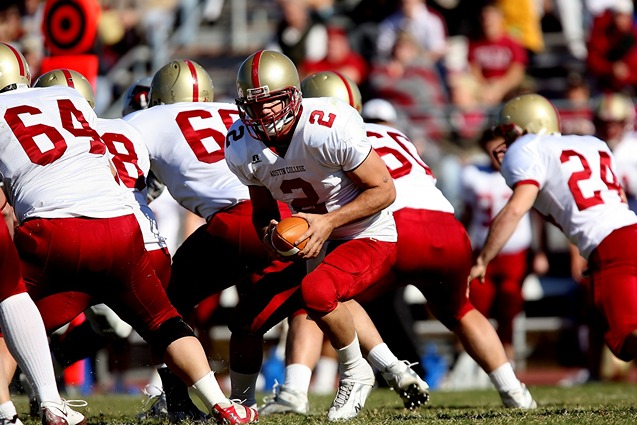
Quarterback in Football
Written By: Gridiron Elite Training

Quarterback in Football
Written By: Gridiron Elite Training
When it comes to understanding the game of football, few positions are as important and complex as that of the quarterback. As the leader of the team on the field, the quarterback in football is responsible for making quick decisions, adjusting plays, and ensuring that the offensive strategy is executed effectively. This guide will delve into the intricacies of the quarterback position, explaining the importance of the role and what makes a great quarterback in football.
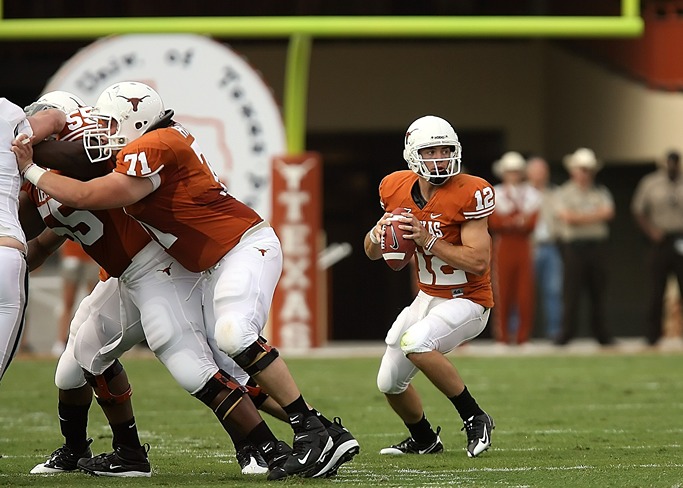
Understanding the Quarterback Position
To appreciate the significance of the quarterback in football, it is crucial to understand the responsibilities that come with the position. The quarterback is the leader of the offense, directing the plays and serving as the main point of communication between the coaches and the rest of the team. As the playmaker, the quarterback must make split-second decisions, taking into account the defensive formation and adjusting plays accordingly to maximize their team’s chances of success.
Additionally, the quarterback is responsible for passing the football to the receivers or handing it off to the running backs, making precision, strength, and decision-making critical elements of their skill set. Ultimately, the quarterback’s goal is to guide their team down the field, scoring points through touchdowns or field goals and managing the clock to secure a victory.
The Skills and Qualities of a Great Quarterback
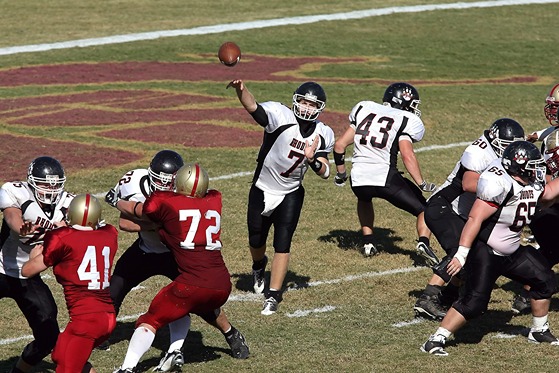
There are several essential skills and qualities that define a great quarterback in football:
- Football IQ: A great quarterback must have an extensive understanding of the game, including the rules, strategies, and the strengths and weaknesses of both their team and their opponents. This knowledge enables them to make informed decisions and effectively lead their team on the field.
- Decision-making: Quick and accurate decision-making is crucial for a quarterback, as they must rapidly assess the defense and choose the best course of action for each play. This includes adjusting the play call, choosing the best receiver, or deciding when to run the ball themselves.
- Arm strength and accuracy: A great quarterback must be able to throw the football with power and precision, hitting their intended target even when under pressure from the defense.
- Mobility: While not every quarterback is known for their running ability, having the mobility to evade defenders and extend plays can be a valuable asset, especially when the pocket collapses, and passing options are limited.
- Leadership: The quarterback is often considered the team’s leader, responsible for motivating and guiding their teammates. Great quarterbacks must have excellent communication skills and the ability to inspire confidence in their team.
The Evolution of the Quarterback Position
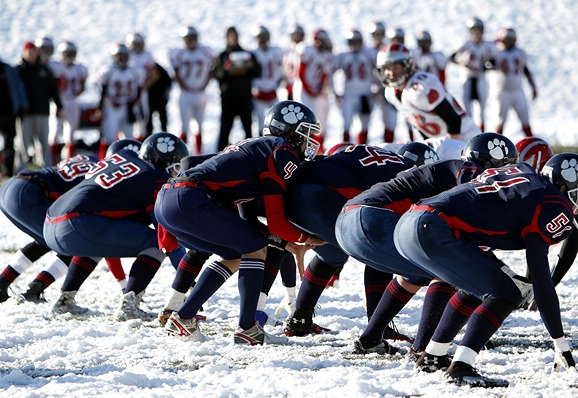
Over the years, the quarterback position has evolved as the game of football has changed. In the early days of the sport, the quarterback’s primary responsibility was to hand off the ball to the running back. However, as passing plays became more prevalent and effective, the role of the quarterback expanded, requiring them to be proficient passers and strategic decision-makers.
In recent years, the quarterback position has continued to evolve, with many teams now utilizing dual-threat quarterbacks who can both pass and run the ball effectively. This style of play has introduced a new dynamic to the game, forcing defenses to adapt and putting even more emphasis on the importance of the quarterback in football.
Quarterback Training and Preparation
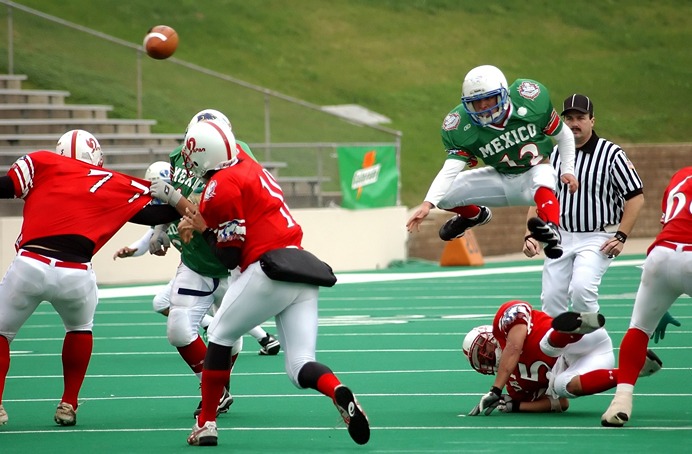
To excel at the quarterback position, players must engage in rigorous training and preparation, both physically and mentally. This includes studying game film to understand opposing defenses, memorizing their team’s playbook, and developing their skills through targeted practice and drills. Some key components of quarterback training and preparation include:
- Strength and conditioning: Quarterbacks must maintain a high level of physical fitness to endure the demands of the game. This includes engaging in strength and conditioning programs that focus on the muscles used in throwing and core stability, as well as cardiovascular exercises to maintain stamina.
- Throwing mechanics: Quarterbacks must continually work on their throwing mechanics to improve accuracy, power, and consistency. This involves practicing various types of throws, such as short, intermediate, and deep passes, as well as refining footwork and release techniques.
- Footwork and mobility drills: A quarterback’s footwork is essential for proper throwing mechanics and evading defenders. Practicing footwork drills and mobility exercises can help a quarterback maintain balance, agility, and quickness in the pocket.
- Film study: Analyzing game film allows quarterbacks to understand the tendencies and strategies of opposing defenses, as well as identify areas for improvement in their own game. This knowledge is invaluable when it comes to making adjustments and decisions on the field.
- Mental preparation: The mental aspect of the quarterback position cannot be overstated. Quarterbacks must develop mental toughness and the ability to remain calm and focused under pressure. Practicing visualization techniques and engaging in mindfulness exercises can help improve a quarterback’s mental game.
Analyzing Great Quarterbacks in Football History
Throughout football history, there have been many exceptional quarterbacks who have left their mark on the game. These players have exhibited the skills and qualities discussed earlier and have demonstrated the importance of the quarterback in football. Some notable examples include:
- Johnny Unitas: Widely considered one of the pioneers of the modern passing game, Unitas was known for his exceptional football IQ, accuracy, and ability to read defenses.
- Joe Montana: With four Super Bowl championships to his name, Montana was a master of the game, showcasing incredible poise, decision-making, and leadership skills.
- Peyton Manning: Manning’s extensive knowledge of the game and his ability to read defenses and make adjustments at the line of scrimmage made him one of the most successful quarterbacks in NFL history.
- Tom Brady: With numerous records and multiple Super Bowl titles, Brady is often regarded as the greatest quarterback of all time. His accuracy, decision-making, and leadership abilities have been instrumental in his success.
- Patrick Mahomes: As one of the current stars of the NFL, Mahomes is known for his incredible arm strength, accuracy, and mobility, as well as his ability to make seemingly impossible throws.
Key Takewaways For What Is A Quarterback in Football

The role of the quarterback in football is both complex and crucial to a team’s success. As the leader of the offense, a great quarterback must possess a wide range of skills and qualities, including football IQ, decision-making, arm strength, mobility, and leadership.
By understanding the intricacies of the position and the evolution of the role throughout history, fans and players alike can gain a deeper appreciation for the importance of the quarterback in football. With dedicated training, preparation, and the development of both physical and mental skills, aspiring quarterbacks can strive to join the ranks of the greats who have come before them.
Subscribe To Get Updates On Newly Released Articles
Don't forget to share this post!
Continue Reading More Football Recruiting Tips Below
Related Articles
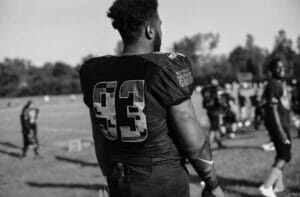
5 Keys to the College Football Recruiting Process
If you are a high school football player, it’s easy to get lost in the college football recruiting process. This article will break down key stages of the recruiting process.
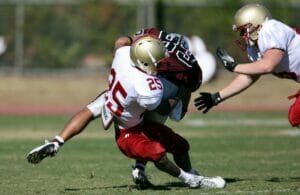
Junior College Football Recruiting
If you’re thinking about playing college football, read this article for quick tips on the process of juco college football recruiting.

Complete Guide to Football Recruiting Rankings
Find out why football recruiting rankings are important, where they come from, what they mean and how they affect your recruiting strategy.

Gridiron Elite Training was started to help educate and provide football players with a community to receive proper training and guidance.
We created “The Gridiron Elite Academy” which is an online football performance network that provides football players of all levels with sports performance workout programs, football position-specific drills, mindset coaching, mental toughness training, recruiting guidance and help, and nutrition programs.


